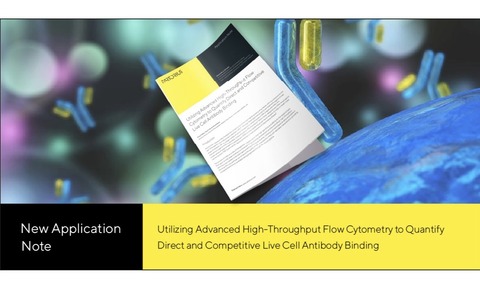
Sartorius has published an application note detailing simple assays that employ its iQue Advanced Flow Cytometry Platform and validated reagents, enabling high-throughput measurement of the binding of unlabelled therapeutic mAbs to target on live cells.
Monoclonal antibody (mAb) therapeutics are one of the most rapidly growing drug classes. FDA-approved mAb products include treatments for diseases, such as immune disorders and some cancers.
Within such categories, mAbs are raised against a wide variety of target antigens, such as anti-HER2 (human epidermal growth factor receptor 2), mAbs to target breast cancers, and anti-TNF (tumor necrosis factor) antibodies to treat symptoms of inflammatory disease.
The success of mAbs as a class of therapeutics is largely due to their high specificity and affinity for the target antigen. Evaluation of mAb target binding is therefore a critical part of the antibody development process, requiring robust, high-throughput techniques to facilitate rapid screening of antibody libraries.
Utilising such techniques early in the drug discovery pathway can enhance the quality of ‘hits’ generated for mAbs with desirable characteristics, providing increased likelihood of candidates being progressed through the clinical pipeline.
The application note presents two simple assays that utilise the iQue Advanced Flow Cytometry Platform and validated reagents, to enable high-throughput measurement of the binding of unlabelled therapeutic mAbs to a target on live cells. It details how to enhance the speed and quality of hits generated during antibody discovery, with measurements of antibody binding.
The direct binding workflow provides robust quantification of binding to native protein on live cells, with simple generation of pharmacological readouts, such as EC?? values using the iQue Forecyt software.
The streamlined process is designed to enhance the speed and quality of hits generated during antibody discovery.
Access the application note.





